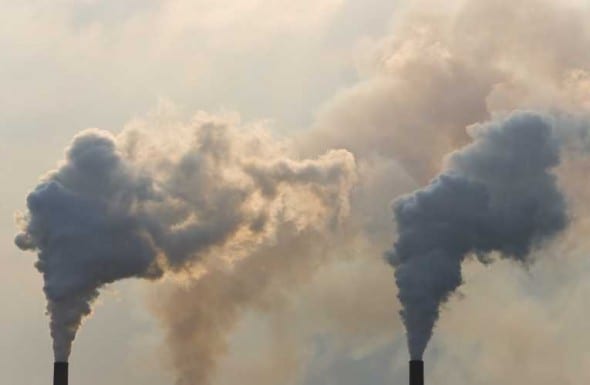Climate denial comes in a variety of forms. Donald Trump famously called it a “Chinese hoax,’ Senator Malcolm Roberts claims there isn’t any empirical evidence, while the Australian Government promotes new coal mines whilst spruiking a set of ineffective climate policies.
But the deepest denial about climate change rests within Australia’s coal, oil and gas companies; which is ironic given that is where some of the impacts will be most keenly felt.
There are fifteen energy companies listed in Australia’s broadest equity index, the S&P ASX300. And as we are in the midst of AGM season, they are all on show.
The most striking thing about the meetings held thus far – AWE, Beach Energy, Caltex, Origin Energy, Senex Energy, Whitehaven Coal and WorleyParsons – is how few of the companies acknowledge and are planning for the impacts of the Paris Climate Agreement.
This matters because Australian companies are obliged to identify those risks likely to have a material impact on their financial performance.
Legal opinion published recently from Noel Hutley SC, stated that company directors “should be the considering the impact on their business of climate change risks”.
If the Paris agreement is even to be taken half seriously, the world will be forced to adhere to a carbon budget, meaning at the very least, any attempt to expand fossil fuel reserves is simply out of the question.
Hence, the transition away from fossil fuels could mean writing down the value of coal, oil and gas reserves by hundreds of millions of dollars – surely that is material?
Yet in the energy sector, Origin Energy is the only company to identify climate change as a ‘material business risk’, but even it stops short of providing a clear plan to its shareholders to reduce emissions.
The overwhelming sentiment from our domestic gas producers is that they have a role to play in the transition to a low carbon economy. Yet no Australian gas producer has provided a comprehensive scenario analysis to justify their optimism.
Not only is Australia’s energy sector largely ignoring the Paris Agreement, nor planning for its implications, but they’re also projecting “long life growth”, as though there is no possibility that their business models could be disrupted.
Ten of the fifteen companies in the ASX300 energy sector even continue to reward executives for meeting exploration targets. And in every AGM so far this season, institutional investors – our banks, insurers and most importantly, our super funds – have overwhelmingly approved these remuneration packages.
If our energy sector is so reluctant to transition, then what are investors doing about it? Unlike in Europe and the US, there have not been myriad resolutions put to companies to force change. Nor has there been widespread voting against remuneration or director re-elections for failing to deal with climate risk.
In Australia, the only thing of note has been the scale of empty rhetoric.
Most Australian investors, including the vast majority of our super funds, have eschewed the fossil fuel divestment movement, which exceeds a staggering $3.5 trillion globally, preferring to remain invested in energy companies and use their influence as shareholders to change them from within.
Engagement is a vitally important tool, and can be hugely effective, but we need to be honest about what it has achieved in the Australian energy sector. The truth is, not a lot.
Take Karoon Gas, which has a prime example of an outdated business model. It currently sits on a cash mountain of $480 million, the proceeds from undeveloped oil and gas reserves sold to Origin Energy in 2014.
Its intended purchase of Brazilian deep-sea reserves recently hit a hitch, but it is also planning on exploring the Great Australian Bight. Its CEO, Robert Hosking, can earn an annual bonus up to $450,000, largely driven by meeting exploration targets.
Investors are set to vote on Karoon’s remuneration report at their AGM next week and the signs are that investors will simply tick this off.
One straightforward step would be for investors to predicate executive bonuses on 2°C scenario planning. The same restrictions are in place for the health and safety of workers, so why not the planet?
One year on from Paris, it’s time for investors to deliver. Recalcitrant companies should face the kind of actions they understand – voting down remuneration reports, executives’ incentives, and director re-elections.
Daniel Gocher is Head of Research at Market Forces.








